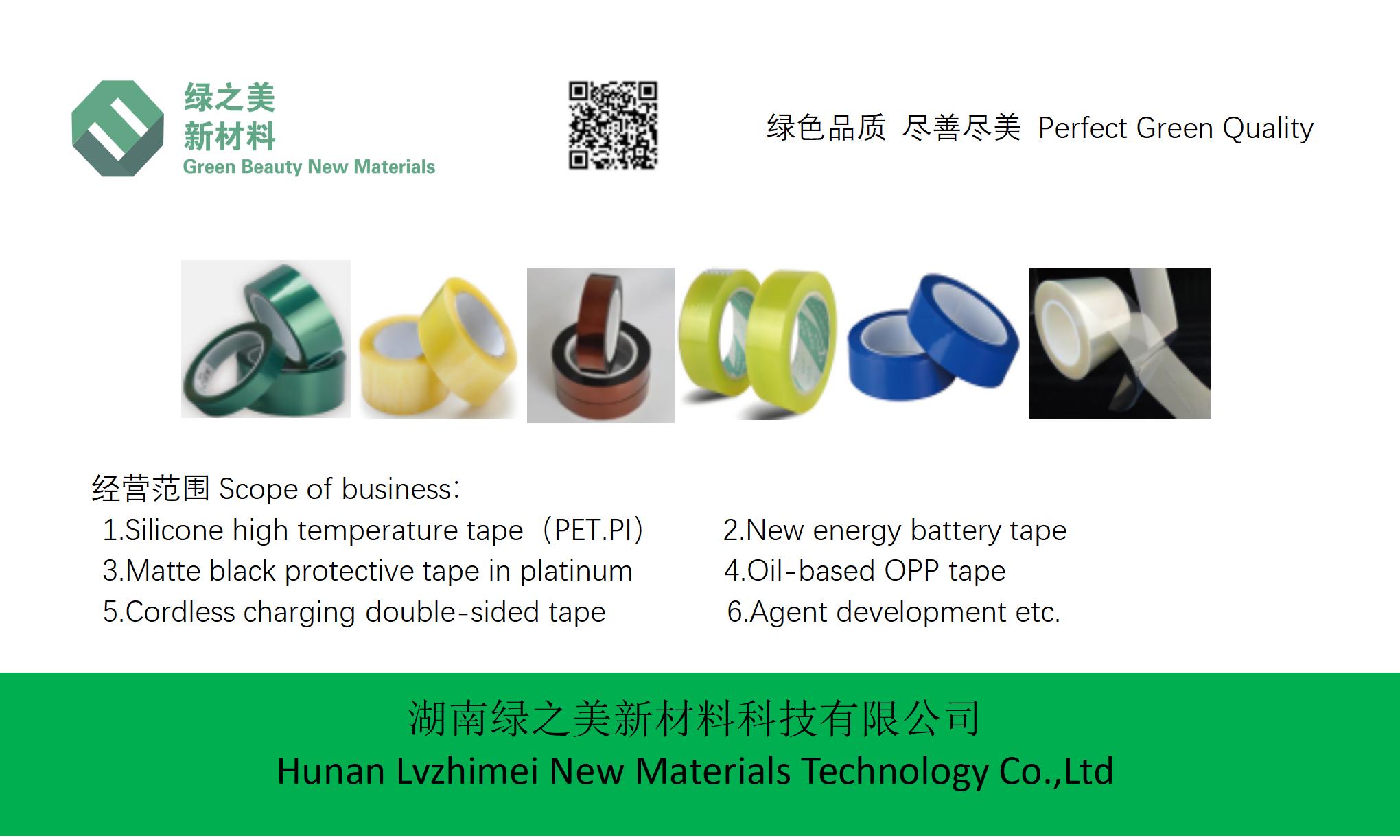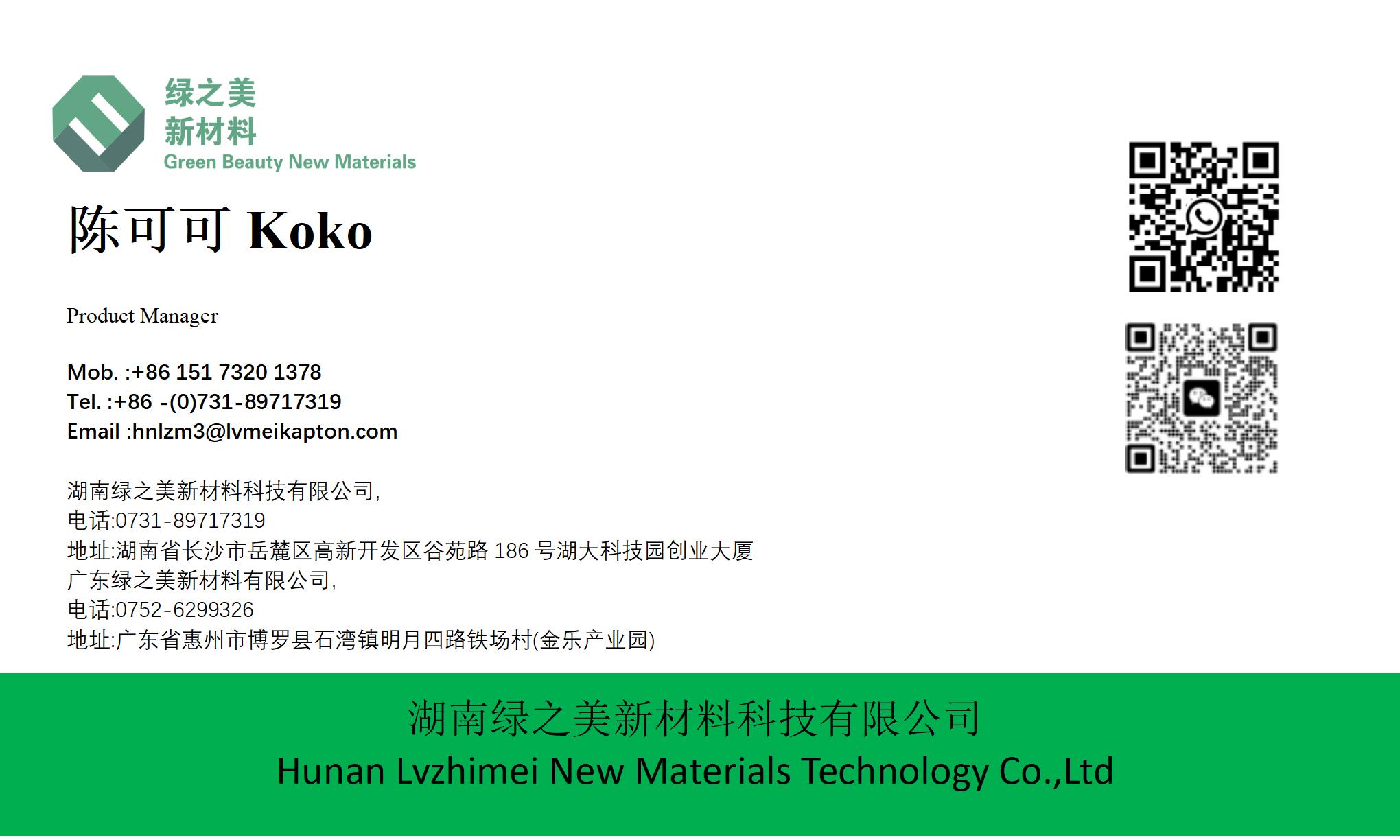hnlzm@lvmeikapton.com
+86 13787123465


Hunan Lvzhimei New Material Technology Co., Ltd.


NameDescriptionContent
Why Kapton Tape Is Essential for PCB Assembly Testing |https://www.lvmeikapton.com/
Source:
|
Author:Koko Chan
|
Published time: 2025-05-21
|
418 Views
|
Share:
This article highlights the critical role of Kapton tape in PCB (Printed Circuit Board) assembly testing, focusing on its essential properties of high-temperature resistance, flame retardancy, and precision. By exploring applications in thermocouple wire adherence for reflow oven temperature monitoring, flexible circuit board (FPC) fixation, and compliance with IPC-A-610 testing standards, the significance of Kapton tape in ensuring assembly quality and reliability is emphasized.
Keywords: PCB assembly testing, Kapton tape, lvmeikapton insulating electrical tape
Keywords: PCB assembly testing, Kapton tape, lvmeikapton insulating electrical tape
Why Kapton Tape Is Essential for PCB Assembly Testing
AbstractThis article highlights the critical role of Kapton tape in PCB (Printed Circuit Board) assembly testing, focusing on its essential properties of high-temperature resistance, flame retardancy, and precision. By exploring applications in thermocouple wire adherence for reflow oven temperature monitoring, flexible circuit board (FPC) fixation, and compliance with IPC-A-610 testing standards, the significance of Kapton tape in ensuring assembly quality and reliability is emphasized.
Keywords: PCB assembly testing, Kapton tape, lvmeikapton insulating electrical tape
1. IntroductionIn modern electronics manufacturing, PCB assembly testing plays a pivotal role in ensuring product functionality and longevity. The process involves multiple stages—soldering, component placement, thermal stress testing, and electrical insulation verification—each demanding stringent quality control. Kapton tape, a high-performance adhesive material based on polyimide film, has emerged as an indispensable tool in these processes. Its unique properties, including thermal stability, electrical insulation, and mechanical flexibility, make it a cornerstone of reliable PCB testing.
2. Understanding Kapton TapeKapton tape, also known as PI (polyimide) tape, is constructed using a polyimide film substrate coated with a high-temperature-resistant adhesive. This composition grants it several key characteristics:
●
Extreme Temperature Resistance: Capable of enduring temperatures up to 300°C, Kapton tape maintains stability in reflow oven environments where soldering temperatures often exceed 250°C.
●
Flame Retardancy: Self-extinguishing properties prevent fire hazards during thermal testing.
●
Electrical Insulation: High dielectric strength (≥1000 V/mil) ensures safe isolation between conductive elements.
●
Adhesive Performance: Strong yet removable bonding enables temporary fixation without residue.
These attributes position Kapton tape as a versatile solution for both assembly support and testing protection.
3. Critical Applications in PCB Assembly Testing
3.1 Thermocouple Wire Adherence for Reflow Temperature MonitoringDuring PCB reflow soldering, precise temperature profiling is vital to prevent component damage or solder joint defects. Thermocouples are commonly used to measure real-time temperatures at critical points. Kapton tape serves as the ideal adhesive for securing thermocouple wires to the board surface:
●
Secure Placement: Its strong bonding ensures wires remain stationary during the oven’s thermal cycling, avoiding data anomalies from wire displacement.
●
Fast Response: Thin polyimide layers minimize thermal lag, enabling accurate readings.
●
Post-Process Recovery: The adhesive’s non-residue property allows easy removal post-testing without damaging the board.
Table 1: Comparison of Kapton Tape vs. Conventional Adhesives in Reflow Testing
Property | Kapton Tape | Conventional Adhesive (e.g., Silicone) |
Max Temperature | 300°C | 200°C |
Residue After Peel | None | Residual adhesive |
Response Time | ≤0.4 sec | ≥2 sec |
Flame Retardancy | UL94 V-0 | Limited |
3.2 Flexible Circuit Board (FPC) FixationFPCs, with their bendable nature, pose challenges in assembly testing. Misalignment during processes like surface-mounting or electrical testing can lead to failures. Kapton tape’s unique flexibility and strong adherence address these issues:
●
Precision Fixation: Kapton tape’s conformability allows it to adhere smoothly to FPC contours, preventing shifting during SMT (Surface Mount Technology) placement.
●
Insulation Barrier: In multilayer FPC testing, Kapton tape acts as a dielectric spacer, avoiding short circuits between layers.
●
Repeated Use Capability: For prototypes or iterative testing, its removable adhesive permits FPC repositioning without material degradation.
3.3 Compliance with IPC-A-610 Testing StandardsIPC-A-610, the global standard for electronic assembly acceptability, mandates stringent criteria for solder joints, component placement, and insulation integrity. Kapton tape aligns with these requirements through:
●
Insulation Assurance: Section 7.2.1 of IPC-A-610 emphasizes the need for non-conductive barriers in high-voltage areas. Kapton tape’s high dielectric breakdown voltage (≥4000 V) exceeds these standards.
●
Visual Inspection Support: Temporary fixation with Kapton tape during testing facilitates clear visual assessments of solder fillets and wire connections.
●
Defect Mitigation: By preventing thermally-induced board warping (Section 8.3), it reduces the risk of assembly defects classified as “non-conforming” under IPC-A-610.
4. Advantages Beyond TestingKapton tape’s utility extends beyond testing into long-term reliability:
●
Thermal Management: Its thermal conductivity (0.3 W/mK) aids in dissipating heat from densely packed components, preventing overheating.
●
Chemical Resistance: Immunity to solvents (e.g., acetone, isopropyl alcohol) ensures durability during cleaning processes.
●
Cost Efficiency: Reusable variants (e.g., lvmeikapton’s specialized insulating tape) reduce material waste in iterative testing.
5. Case Studies: Real-World Impact5.1 Automotive Electronics TestingIn automotive ECUs (Electronic Control Units), Kapton tape is used to secure thermocouples for thermal shock tests (-40°C to 125°C cycles). Its flame retardancy and resistance to automotive fluids (e.g., brake fluid) ensure safety and longevity.
5.2 Aerospace PCB AssemblyFor satellite control boards, Kapton tape’s vacuum stability and resistance to cosmic radiation (per NASA outgassing standards) are critical. Its adherence to IPC Class 3 (high reliability) requirements ensures mission-critical functionality.
6. Challenges and ConsiderationsWhile indispensable, Kapton tape usage requires adherence to best practices:
●
Surface Preparation: Clean, grease-free surfaces are essential for optimal bonding.
●
Application Temperature Limits: Avoid exposure above 300°C to prevent film degradation.
●
Storage Conditions: Store in cool, dry environments to maintain adhesive efficacy.
7. Future TrendsAs PCBs evolve towards miniaturization and 3D stacking, Kapton tape is evolving too. Research in nanoparticle-infused adhesives aims to enhance thermal conductivity while maintaining flexibility. Additionally, laser-cuttable Kapton tapes offer precision customization for advanced assembly geometries.
8. ConclusionKapton tape’s synergy of thermal resilience, electrical safety, and mechanical adaptability makes it an essential component of modern PCB assembly testing. By enabling accurate temperature monitoring, securing flexible components, and aligning with stringent industry standards, it ensures the reliability and safety of electronic devices across industries. As technology advances, its role in maintaining quality control benchmarks will only grow.


Hunan Lvzhimei New Material Technology Co., Ltd.
Quick Links
Product Categories
© 2024 Hunan Lvzhimei New Material Technology Co., Ltd.All Rights Reserved. Designed by Erge
0731 - 89717319
hnlzm@lvmeikapton.com
+86 13787123465
Room 502, Chuangye Building, No186, Guyuan Road, High-Tech District, Changsha, Hunan, China
CONTACT









